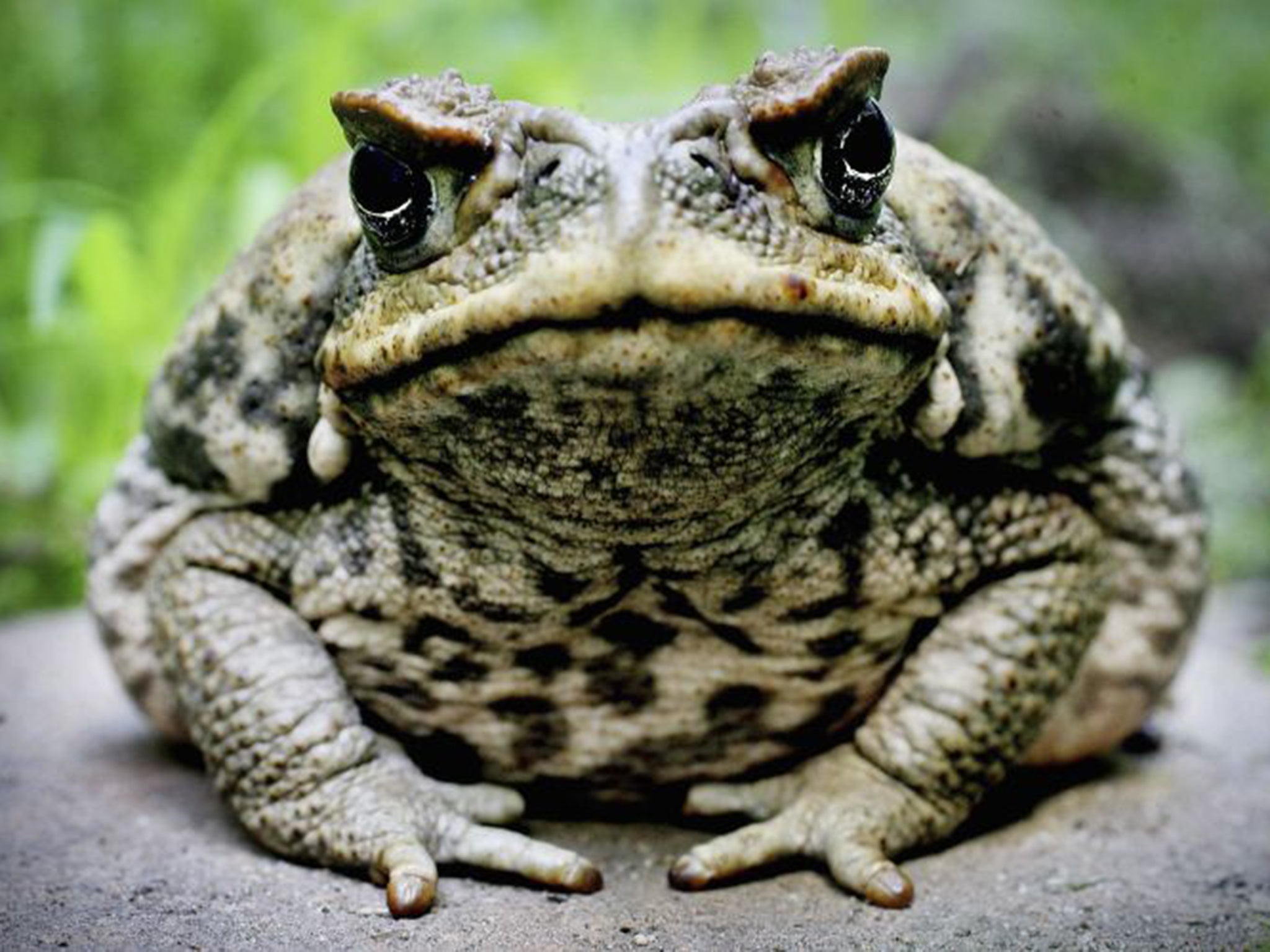Plague of poisonous toads infest suburban Florida neighbourhood
Experts say the amphibians are bufo toads, also known as cane toads

Your support helps us to tell the story
From reproductive rights to climate change to Big Tech, The Independent is on the ground when the story is developing. Whether it's investigating the financials of Elon Musk's pro-Trump PAC or producing our latest documentary, 'The A Word', which shines a light on the American women fighting for reproductive rights, we know how important it is to parse out the facts from the messaging.
At such a critical moment in US history, we need reporters on the ground. Your donation allows us to keep sending journalists to speak to both sides of the story.
The Independent is trusted by Americans across the entire political spectrum. And unlike many other quality news outlets, we choose not to lock Americans out of our reporting and analysis with paywalls. We believe quality journalism should be available to everyone, paid for by those who can afford it.
Your support makes all the difference.A Florida suburb is being plagued by thousands of poisonous toads.
Experts say the amphibians are bufo toads, also known as cane toads.
Residents in the infested Palm Beach Gardens neighbourhood worry toxins secreted by the toads will harm their pets and children.
News stations broadcast images of the small toads clogging pool filters, hopping en masse across driveways and sidewalks, and lurking in landscaped lawns.
Resident Jennifer Quasha told WPBF her family first noticed the toads Friday. She said hundreds of them were in her swimming pool.
Mark Holladay of the pest removal service Toad Busters told WPTV that recent rains coupled with warm temperatures sent the amphibians into a breeding cycle.
Holladay said even more toads are likely to spread throughout South Florida in the coming weeks.
Associated Press
Join our commenting forum
Join thought-provoking conversations, follow other Independent readers and see their replies
Comments